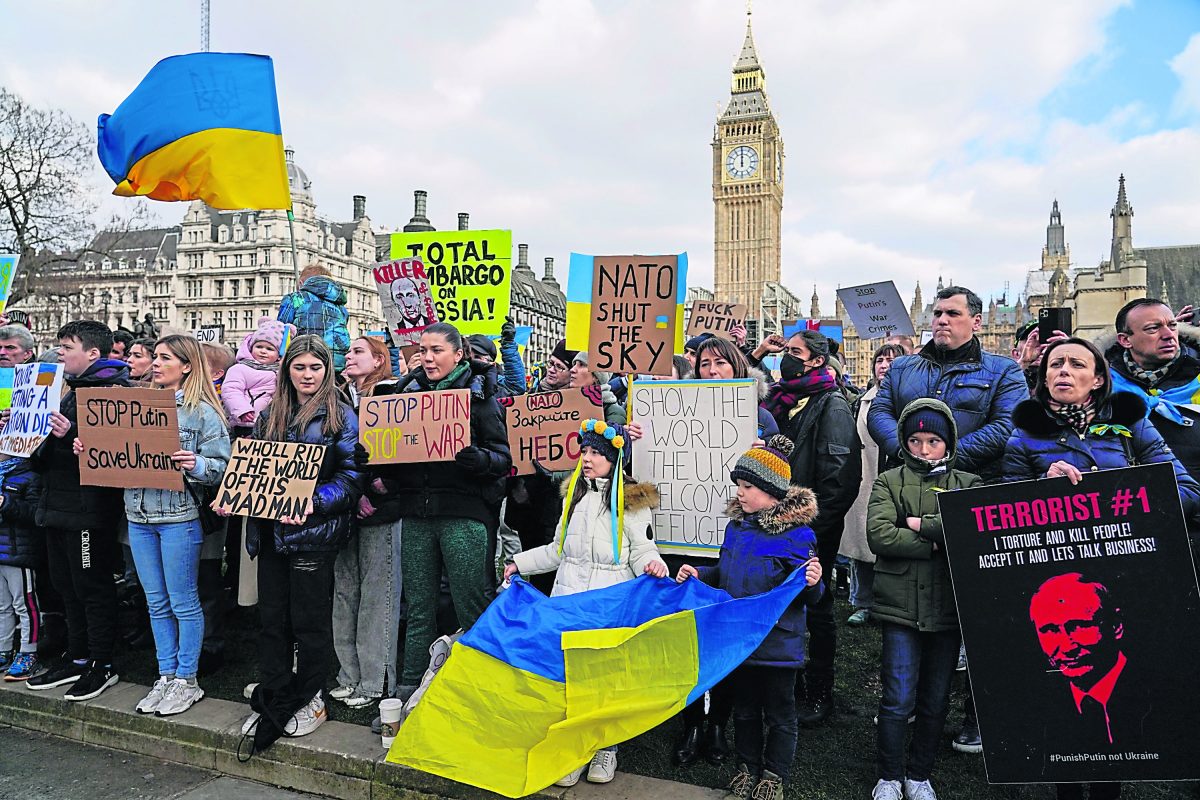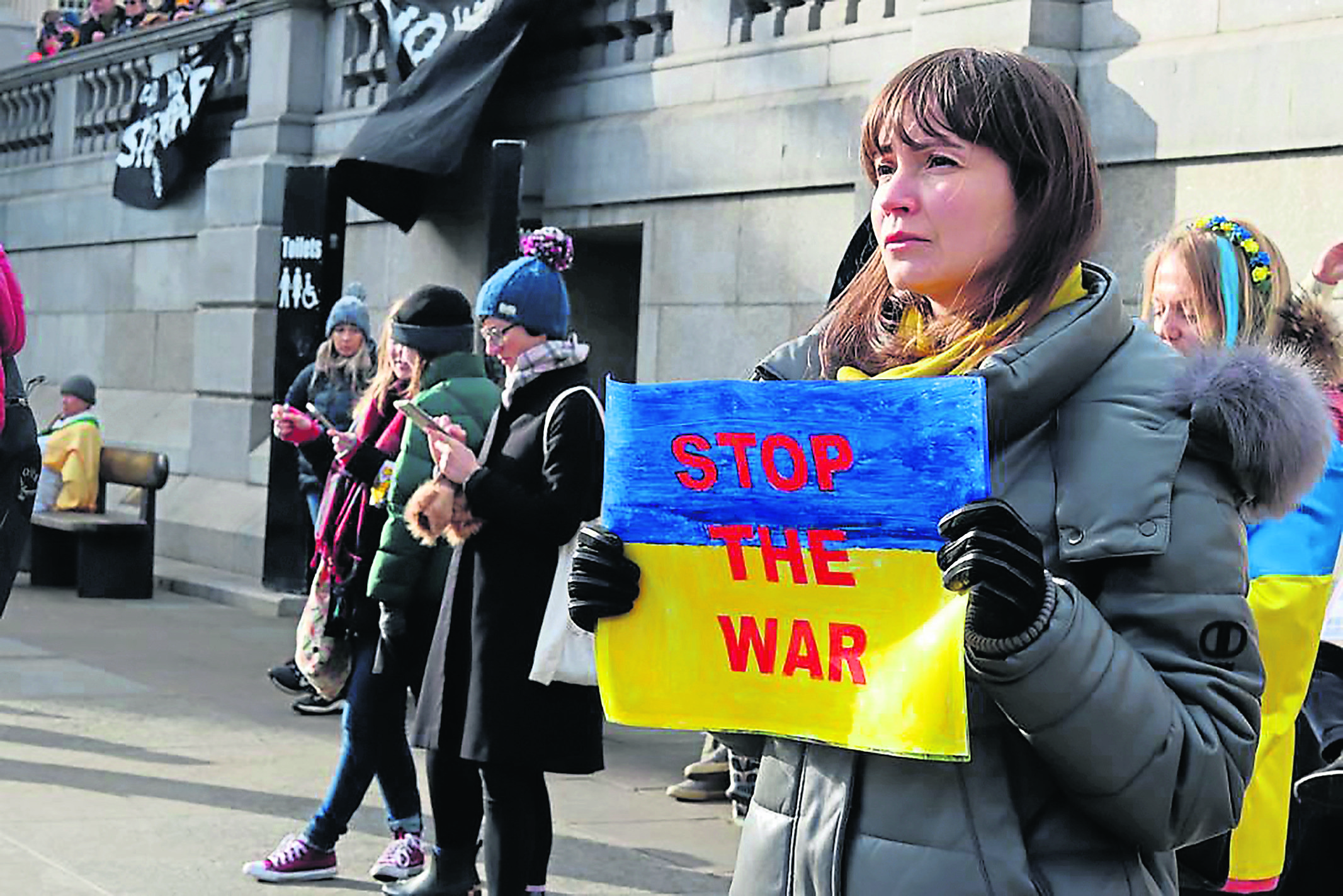The war in Ukraine has seen attacks on civilians and more than two million people flee the country seeking safety.
Millions of others are sheltering in place or seeking shelter in other areas. KU students with family in Ukraine are doing the best they can to help from a distance.
Katya Hudson, an Illustration student at Kingston is fundraising for her grandmother who is in the centre of Kyiv. She said: “My grandmother is currently caught in the centre of Kyiv. We’re trying to make the decision to try and get her out, which is a possibility. However, there is the risk of Russian troops intercepting buses full of people fleeing the country and killing them. So we almost have to decide between staying put or trying to get out and potentially getting stuck somewhere.”
Whilst many countries bordering Ukraine have been quick to help those fleeing the war, Dr. Egle Rindzeviciute, Associate Professor of Criminology and Sociology at Kingston and author of many articles on Russian and Eastern European culture and politics, criticised the lack of help from the UK government.
“This is scandalous and must change immediately. One has to remember the situation with people fleeing from Nazi Germany during World War II, when they were forced to wait to get permissions to leave and enter different countries. Not accepting war refugees is immoral and this applies to the UK’s treatment of all refugees, not only Ukrainians.”
As the UK is only granting visas to refugees who have family in the country, charities and individuals are using other methods to provide help and support and people such as Hudson have been involved in fundraising events.
“We’ve been selling clothes, baked goods and prints in the Knight’s Park reception last Friday, and this and the next three Monday’s I’m selling clothes. Thursdays and Fridays will be a combination of things. My main concern is that there’s only so many times I can present people with things to donate their money for, but hopefully art students will always need clothes,” Hudson said.
In terms of what is most useful for people who want to help Hudson said: “If possible, please give money rather than food. The money would go a long way buying goods in Poland or elsewhere, as opposed to sending things from here. When the refugees do come, and there will be many more waves to flee the country as time goes on, I hope that people won’t be sick of them by then because they’ve outperformed their goodwill.”

Alessia Andreani, a Criminology and International Relations student at Kingston is from Kharkiv and has family living there. She said keeps in touch with what is going on in Ukraine via the news and social media. “I have Telegram which is like a Russian Instagram equivalent, but it is mainly used for news and this is how I stay in the loop. I find that while major events do find their way over here, many things do not make it to the news.
“For example, there was a story where the Russians had bombed a whole kindergarten and thankfully all the children are okay, though two teachers did get injured. It’s these kinds of details that the UK can’t cover due to a lack of information or clarity, though on a larger scale I do believe the media coverage in this country is as representative as it can be with the knowledge they have.”
Dr. Rindzeviciute said: “There is much information circulating on social media, particularly Twitter, where journalists, experts and scholars are reporting directly from Ukraine. Much of what I have seen presents a complex picture clearly communicating the gravity of the situation.”
However when using social media as an information source it is important to check what you are seeing is true. Dr. Alan Flowers, an Honorary Academic at Kingston who has close ties with Ukraine as a pro-democracy activist, said:
“Much of the imagery you see is from the current conflict, but don’t trust everything on social media. For various propaganda purposes, it suits both sides to be showing certain forms of images that might not have originated from this present conflict.”
“In the first few days of Russia invading, images and footage of destroyed areas were circulating which were actually from past conflicts in areas like Syria and Chechnya. Major news organisations have fact-checking measures, however be very careful on social media as it is rampant with unverified news and propaganda.”
A recent example of this was a video circulating online that claimed to be a Ukrainian child confronting a Russian soldier however after a closer look was shown to be a Palestinian child yelling at an Israeli soldier filmed 10 years ago.
The war also has an impact for Russian students. Many who were contacted for this article were reluctant to speak due to fears for their own safety and did not feel comfortable to comment.
For anyone impacted by the conflict in Ukraine and in need of support, please get in touch with the Student Wellbeing team via MyKingston.

